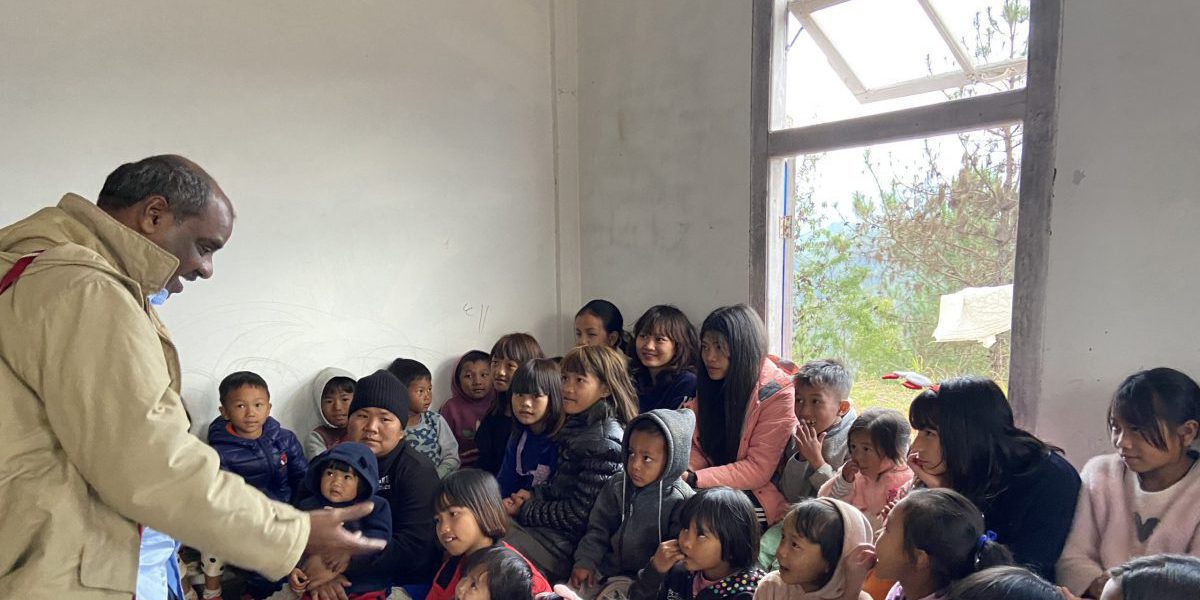JRS India & PRM: Ensuring the Wellbeing of Vulnerable Populations with New Funding
30 June 2025|JRS South Asia

First posted: jrsusa.org
This past September (2022), a new Jesuit Refugee Service (JRS) program in India was awarded a three-year grant by the Department of State: Bureau of Population, Refugees, and Migration (PRM). The grant was awarded following a needs assessment conducted in 2021 by Jesuit Refugee Service South Asia (JRS SAS).
Located in two states (Manipur and Mizoram), these projects primarily focus on education, Mental Health and Psychosocial Support (MHPSS) services, and reconciliation for the vulnerable Burmese population in India. The needs assessment included consultations to incorporate the feedback of the local refugee communities. During the needs assessment, they found a significant gap in educational retention due to a lack of resources. The children (and caregivers) who were identified as a primary targets of these programs will receive the following:
- Complimentary Education Classes (CEC) for children 5-16 to assist with enrollment in host community schools
- Bridge classes and remote classes to assist with dropout rate as well as more limited access to a formal education
- Community outreach including recreational activities
- Teacher training and awareness-raising workshops for JRS and host community teachers
In addition to the educational objective(s), MHPSS and reconciliation are top priorities for the new grant. This consists of efforts to improve access to psychosocial wellness and social support for the identified population through psychosocial aid, reconciliation services, and networking assistance. For those receiving support through these projects, programs will consist of:
- Interface meetings to bring local leaders together with varying humanitarian actors, partner agencies (including UNHCR), and local government members
- Peace and reconciliation sessions between refugees and their host community
- Psychosocial support sessions for youth, counseling for caregivers, and referrals for identified severe cases
- Menstrual health awareness for adolescent girls
While there are additional humanitarian organizations present, JRS has taken the necessary precautions to avoid the duplication of efforts and maximize interventional outcomes. Therefore, a new Jesuit Refugee Service project office will be constructed as well as seven (7) new community-based learning centers throughout project locations. Amongst the team of staff, locally qualified Burmese individuals will be trained as JRS field staff and teachers, in charge of engaging with the community to preserve cultural sensitivities and needs.
Overall, the three-year grant aims to ensure that the cognitive and emotional well-being of the affected population will not be compromised due to prolonged crises. While this may look different for all individuals depending on specific demographics and needs, JRS will continue to accompany, serve, and advocate in the manner that suits the community best.
